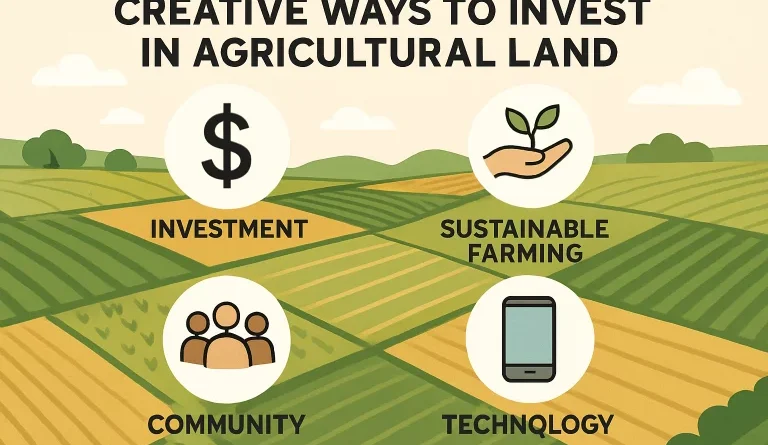Creative Ways to Invest in Agricultural Land
Today’s investors can diversify their agricultural exposure by utilizing financial technology, fractional ownership models, and community frameworks. These innovative strategies allow for tailored agricultural exposure based on resources, time commitment, and ethical priorities, thereby supporting sustainable food systems and bringing farmland closer to investors.
Diversifying into agricultural land offers stable returns and supports a foundational industry. Its tangible assets and global food security make it an evergreen option for experienced and new investors. Agricultural land becomes a strategic holding as climate resilience and food production efficiency grow. If you’re looking for a proven market to start your journey, land for sale Iowa is a reputable portal, granting access to fertile tracts in a region historically recognized for its agricultural performance and consistent yields.
Real Estate Investment Trusts (REITs)
Farmland REITs offer individuals exposure to productive land without owning or managing a farm. These vehicles pool funds to acquire and lease farmland for shareholders, distributing rental income and asset appreciation through dividends. Companies like Gladstone Land Corporation have specialized teams to manage farms, minimizing day-to-day involvement. REITs lower financial and operational barriers, making farmland investment a straightforward addition to a diversified portfolio.
Agricultural Mutual Funds and ETFs
Mutual funds and ETFs focusing on agribusiness offer instant diversification across the food and fiber supply chain, including seed and crop science, fertilizer and irrigation supply, food processing, and agricultural machinery manufacturing. Popular VanEck Agribusiness ETF (MOO) assembles portfolios of global leaders and innovators, providing broad market representation. With daily liquidity, professional oversight, and simplified tax treatment, they require minimal investor oversight.
Direct Land Ownership
Direct land ownership is often revered as the gold standard of agricultural investing, providing both tangible value and robust control over the direction of your asset. When you own and manage farmland yourself, you can lease parcels to established farmers for passive rental income or directly manage operations to profit from cash crops, livestock, or specialty produce. This approach does demand higher up-front capital and comprehensive diligence—including environmental, legal, and market analysis—but it offers unmatched upside in appreciation, especially in high-demand regions. Savvy buyers focus on productive states like Iowa, whose rich soils and farming heritage create dependable yields and stable tenant populations.
Sustainable and Organic Farming Investments
Investing in sustainable farming methods is becoming a business decision for future-proofing assets. Organic markets show growth due to consumer demand for transparency and health benefits. Regenerative practices improve soil health, yields, and access to premium markets. Investors can support sustainability funds or certified organic farms. Dedicated sustainability and organic-focused investment networks offer education and opportunities.

Agricultural Technology Startups
The agricultural technology sector is undergoing a significant transformation, with startups developing tools to improve efficiency, reduce environmental impact, and adapt to changing climate conditions. These innovations include drone-guided crop monitoring, AI-powered soil analytics, robotics, hydroponics, and lab-grown proteins. Investors can access these ventures through specialized funds, private equity placements, or crowdfunding portals.
Conservation Easements
Conservation easements are a growing investment strategy that combines land stewardship with investment. Landowners restrict commercial development or non-agricultural use to preserve open space, wildlife habitats, and critical agricultural zones. In exchange, they receive compensation, tax breaks, or estate planning advantages. Farmland investment is versatile and accessible, offering pathways to steady financial growth while supporting sustainable agriculture and food systems.
Visit the rest of the site for more interesting and useful articles.

